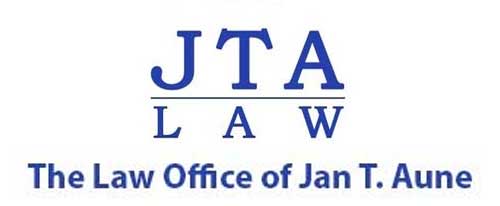Follow Us x
WHISTLEBLOWER PROTECTION: We'll Protect Your Rights as a Whistleblower and Aggressively Prosecute Your Case in California State and Federal Court
You Have Rights as a Whistleblower if You've Been Retaliated Against for Reporting Misconduct
Are you a whistleblower who has been retaliated against? Have you reported the violation of a California state or federal statute, rule, or regulation in the workplace and were retaliated against for doing so? Are you aware of fraud in the workplace but don't know how to report it or who to report it to? The Law Office of Jan T. Aune is an experienced whistleblower attorney who is ready to help in cases of:
- Whistleblowing
- Whistleblower Retaliation - Including California Labor Code Section 1102.5 Whistleblower Retaliation
- Federal False Claims Act (FCA) and Reporting Fraud Against the Government; including Qui Tam Actions
- Defense Contractor Whistleblower Protection Act (DCWPA)
- Corporate/Financial/Manufacturing Whistleblower
- Federal Contractor Fraud
- Wrongful Termination
We want to be sure to protect you from people who have bad intentions when it comes to retaliating against you or a family member as whistleblower , or committing fraud whether in the workplace or against the California state or Federal government. Contact The Law Office of Jan T. Aune today to get legal assistance in cases involving whistleblowing in the Los Angeles, CA area.
We will prosecute your case to the fullest in California state and Federal court. We handle cases in the private and public sectors including public sector employers such as the city, county, state and federal government, healthcare facilities, school districts, and state colleges and universities. We handle cases including the counties of Los Angeles, Orange, San Bernardino and Riverside.
WHAT A WHISTLEBLOWER MUST PROVE TO PREVAIL:
The California state and Federal whistleblower laws sometimes have different requirements for the whistleblower proving his or her case in court against the employer or some other bad actor. With that being said, in order to prevail in a court of law whistleblowers generally need to show:
1. They engaged in protected activity, or the employer thought they did
2. They suffered an adverse employment action, which can include harassment, hostile
work environment, demotion, or termination.
3. That the protected activity caused the employer to take the adverse action.
4. The amount of their damages and that they took reasonable efforts to mitigate their
damages (such as by looking for another job).
Even if an employee has made a protected disclosure and was subjected to a personnel action because of the disclosure, the employer may avoid liability if it can show that it would have taken the same personnel action even if the disclosure had not been made. Whistleblowers can benefit from learning if they can tape record at work and how to properly handle employer documents they can access through the performance of their job duties. The law is still developing on the extent to which whistleblowers can use these documents to support their claims.
If you are still employed and are having whistleblower issues at work, please feel free to contact Mr. Aune to discuss.
Whistleblower Rewards
What a Whistleblower Can Recover in California State or Federal Court
Many whistleblower protection laws provide for back pay for lost wages, front pay for future lost wages, reinstatement compensatory damages (including emotional distress), and litigation costs and attorney fees. In fact, the Federal False Claims Act's Retaliation provides for double back pay.
Some whistleblower protection laws provide for special damages and may provide a whistleblower with punitive damages. The purpose of punitive damages is to punish and deter the wrongdoer and to deter the public from committing the same acts as the wrongdoer by way of example.
Employees Could Benefit from an Experienced Whistleblower Retaliation Attorney
If you believe that you have suffered retaliation related to your whistleblowing or have information pertaining to fraud or misconduct, please call us to schedule a free initial consultation to discuss your concerns at 818-238-7483.

.jpg)

.jpg)